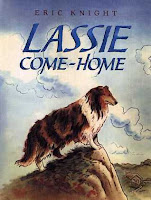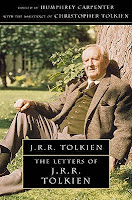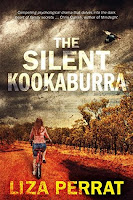Note: This review contains SPOILERS.
At first,
this was so bad that it was sort of entertaining.
We have a Cinderella-meets-the-Beauty-and
the-Beast-with-a-hint-of-the-Phantom-of-the-Opera-like story that reads like
terrible BDSM, just without sex (which actually makes it worse), but with a
generous dash of brainwashing.
The male
protagonist (aka the villain, I am certainly not calling him a hero) is a sadistic
and manipulative asshole, who throws the female protagonist in a dungeon to
make the transition from her old life to the new one ‘easier’ – for him, of
course. After all, it is much easier to brainwash someone to accept common
human decency and having one’s basic needs met as luxury if one has only ever
been shown cruelty – though, as they say, the absence of cruelty is not the
same as kindness – than win them over by treating them right from the
beginning.
The cold
king is a typical abuser, targeting the weak and isolated and tearing them down
before building them back up to his own desires by making them completely dependent
on him, all of which he justifies as improving their lives and showering them
in luxury they could never experience otherwise.
Even Calia recognises
that as shitty but falls for it hook, line, and sinker, as does everyone else –
who, by the way, does nothing to help her at least with good advice. But, after
all, that is neither Calia’s nor the others’ fault, since they are all victims
and Calia with her reasoning the most typical of them all.
The cold
king is supposed to be a tortured hero, but even if his pain is understandable,
it doesn’t excuse his behaviour. I couldn’t feel even remotely sorry for him or
his predicament for being cursed (with the curse of his own doing.) He also has
a giant ego, and naturally, as people of his kind do, knows better what is best
for Calia and others then they do themselves.
Calia
herself is an ‘extreme Cinderella’, ignored and disliked by everyone, including
her horrible, abusive, and neglectful mother. Her poor fortune and suffering
(in comparison to everything else, all her crying was the least of a bother) is
exaggerated to the maximum in order to garner sympathy. Needless to say, it
didn’t work for me.
She is also
quite a bit of a Mary Sue, suddenly becoming pretty (no, hair growth does not
work like that!), graceful, and smart (she learns to read very fast, knows things
she had nowhere to learn (such as doing cuff-links), passes sound judgements,
etc.), except, of course, for her own situation.
All of the above
perpetuates the terrible message that if a woman suffers quietly through abuse,
accepts her lot in life, and moulds herself completely to the abuser’s wishers,
she will get her fairy-tale ending.
Because, of
course, in the end the male protagonist falls in love with her (which also
undoes the curse, duh!) and learns the error of his ways and changes for the
better and treats her like a queen (literally) – which doesn’t happen in real
life.
Calia only develops
a bit of a spine towards the end, but only because she is hurting by her love
not being requited, and not, you know, because of all other terrible things the
cold king has done to her.
The book
only gets worse after the half-way mark when we suddenly get multiple, jumping
POVs, including the omniscient POV (either that or Calia becomes telephathic),
and every ridiculous romance (but not romantic) cliché in existence is used and
abused for the contrived quasi-love story.
With
putting Calia in the role of a personal servant – who basically does what a
valet would – and other characters’ occupations, Jaeger tried to subvert gender
roles, which would be commendable, but fell flat due to the characterization
which was unflattering in Calia’s case and virtually non-existent in other
characters who were mostly bland and one-dimensional.
Add to this
an attempt of ‘progressiveness’ by having the cold king be accepting of a
same-sex couple, except that it was poorly executed, since kindly ‘overlooking’
their ‘friendship’ is not exactly the same as not being homophobic.
I won’t
even go into all the inconsistencies within the story. For example, the setting
is undecided on whether to be steampunk-ish with some ‘high’ tech, such as a
likeness of modern plumbing and the use of diamonds for industry and craft, or one
of a pre-industrial impoverished agricultural society.
Perhaps indecisiveness
is at the core of this book’s problems. The blurb says that “… Not every Beast is a prince charming at
heart and not every Beauty is a maiden just waiting for love…” and perhaps
the author wanted to be edgy and actually re-tell The Beauty and the Beast as a story about abuse, but failed at it,
because the end result is something that goes back and forth between trying to
be just that (mostly) and a classic HEA fairy-tale but ending up as a horrible
mess instead.
Overall, by
the end of the book, I wasn’t entertained by the bad-ness of it anymore, only disgusted.



























